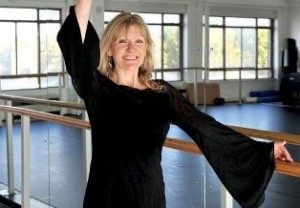 The Human Mind Project launches on 12 December 2013 with a FREE public evening panel session held at Senate House, London. The project seeks to co-ordinate an international effort to define the major intellectual challenges in understanding the nature and significance of the human mind. Central to its success is collaboration across conventional disciplinary boundaries.
The Human Mind Project launches on 12 December 2013 with a FREE public evening panel session held at Senate House, London. The project seeks to co-ordinate an international effort to define the major intellectual challenges in understanding the nature and significance of the human mind. Central to its success is collaboration across conventional disciplinary boundaries.
In the lead up to the launch the School of Advanced Study have conducted a series of short interviews with the initial project team. Our second interview is with Professor Nicola Clayton from the University of Cambridge. Clayton is a professor of Comparative Cognition and the scientist in residence at Rambert Dance Company.
First of all, could you tell us a bit about yourself and your area of research?
I’m Professor of Comparative Cognition in the Department of Psychology at Cambridge University, and a Fellow of Clare College. I was elected a Fellow of the Royal Society in 2010.
My expertise as a scientist lies in the contemporary study of how animals and children think. This work has led to a re-evaluation of the cognitive capacities of animals, particularly birds, and resulted in a theory that intelligence evolved independently in at least two distantly related groups, the apes and the crows. I have also pioneered new procedures for the experimental study of memory and imagination in animals, investigating its relationship to human memory and consciousness, and how and when these abilities develop in young children.
In addition I am also a dancer, specializing in Argentine tango and salsa. I am also Scientist in Residence at the Rambert Dance Company, collaborating with Mark Baldwin, the Artistic Director, on new choreographic works inspired by science (Comedy of Change, 2009, 2013; Seven For A Secret Never To Be Told, 2011; What Wild Ecstasy, 2012).
My most recent collaboration with artist and writer Clive Wilkins arose out of our mutual interest in imagination, and its consequences for consciousness, identity and memory. We also regularly dance tango together.
The Human Mind Project is a collaborative venture between the humanities and the sciences. What do you think are the particular opportunities and challenges for this type of collaboration?
We are all interested in the human condition, and how to circumnavigate the miasma of being. To explore the edges we need to step out of our original disciplines, and explore those improbable connections. Clear communication will be key, as well as the ability to adopt different perspectives.
What do you hope the Human Mind Project will achieve?
I don’t know, and I am so glad I don’t! The exciting questions are the open ended ones that don’t have an obvious answer at the beginning of the adventure.
The Human Mind Project is an international collaboration including the Institute of Philosophy (SAS). For full details check the Human Mind Project website. To book and find out more about the ‘What’s so special about the human mind?’ panel session taking place on Thursday 12 December 2013 check our previous blog post Project Launch – What’s so special about the Human Mind?
The panel session will take place in the Beveridge Hall, Senate House, University of London on Thursday 12 December 2013, 5pm-8pm, followed by a reception in the Macmillan Hall.
The event is FREE to all but please reserve your seat on our booking page to avoid disappointment.
SAS hosts more than 1,800 events each year – the majority of which are free and open to all. Search our events calendar or sign up to our mailing list for the latest information.

